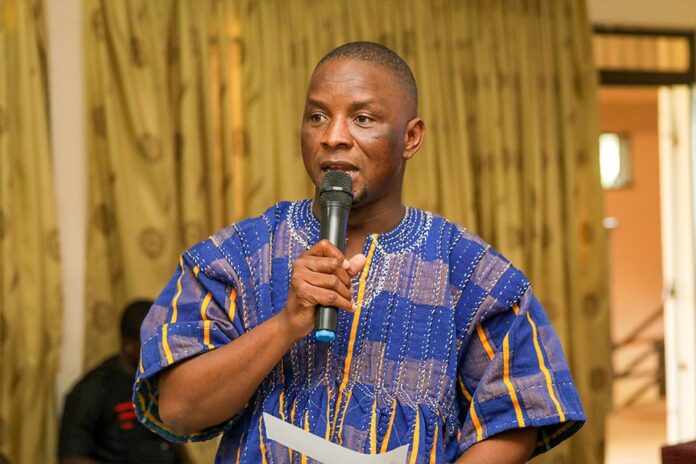The Dean of the Faculty of Ghanaian Languages Education at the University of Education, Winneba (UEW), Prof. Samuel Alhassan Issah, has stepped in to address the pressing infrastructural challenges facing the Tampion Kukuo community in the Northern Region.
Tampion Kukuo, like many peri-urban areas in northern Ghana, struggles with inadequate infrastructure, particularly in the education sector.
For years, the construction of a three-unit classroom block, intended to alleviate congestion in the local school, had stalled due to a lack of funding.
In response, Prof. Issah, who received his primary education in the community, mobilized support from his network of friends to raise GHC 15,000 to complete the roofing of the structure.
At a ceremony attended by chiefs, elders, headteachers, teachers, parents, and community members, Prof. Issah officially handed over the funds to the project managers to facilitate the completion of the classroom block.
The gesture was met with overwhelming appreciation from local education stakeholders.
The Circuit Supervisor of the Ghana Education Service (GES), along with the headteachers of the Primary and Junior High Schools, expressed their excitement, noting that the project’s completion would decongest classrooms and create a more conducive learning environment for students.
“The lack of classroom space has been a major challenge for us. Some pupils sit under trees to learn, while others are crammed into small rooms. This support from Prof. Issah is a game-changer,” said Mr. Issah Sulemana, headteacher of the primary school.
The Principal of Bagabaga College of Education, Prof. Gazali Issahaku, also pledged to support the school with teacher trainees to enhance the teaching and learning process.
As part of the discussions, Madam Monica Issah, a staff member of the Ghana Education Service, called on lactating teachers to seek support for their babies rather than bringing them into classrooms while teaching, emphasizing that such practices affect the quality of education.
Reflecting on his motivation for the initiative, Prof. Issah recounted his childhood experiences, noting the struggles he and his classmates faced while walking several kilometers to school.
“I am who I am today because of this community. It is only right that I give back and help create better opportunities for the younger generation. I sincerely thank all my friends and colleagues who contributed to make this possible,” he stated.
The intervention by Prof. Issah highlights the larger issue of inadequate educational infrastructure across many rural and peri-urban communities in Ghana. Numerous schools remain in dire need of classrooms, furniture, and learning materials.
The story of Tampion Kukuo serves as a call to action for other influential individuals to use their resources and networks to support their hometowns and help bridge the educational gap.
As education remains a key driver of development, such efforts will go a long way in shaping the future of many children and ensuring that every child, regardless of location, has access to quality learning conditions.



